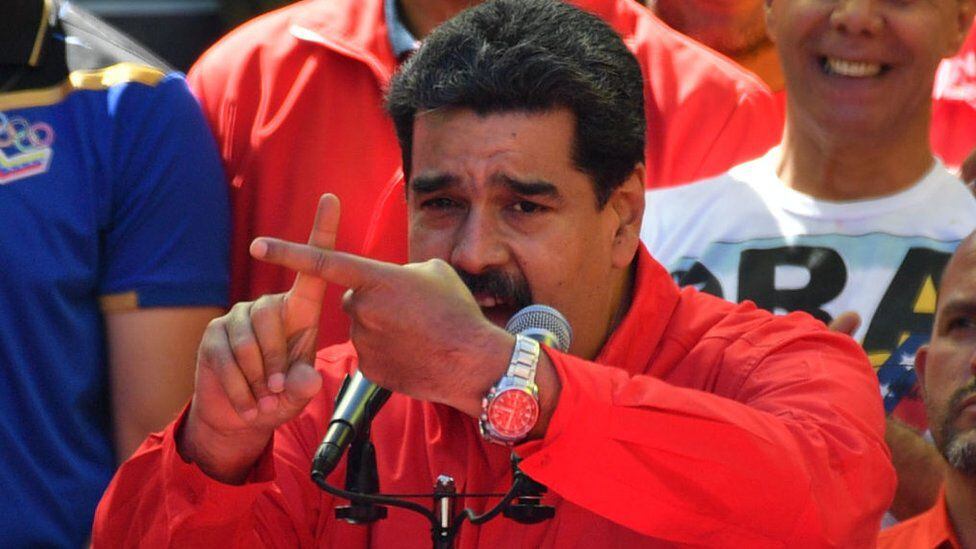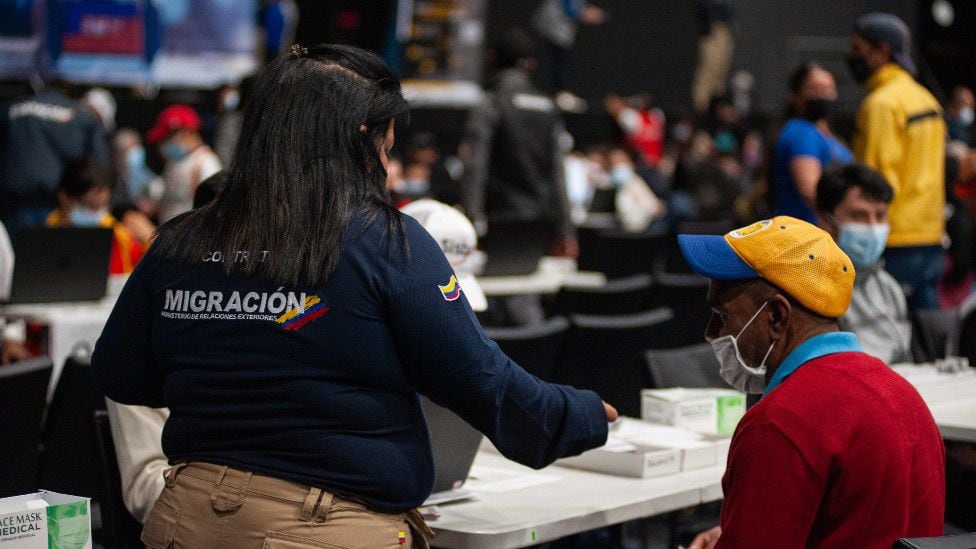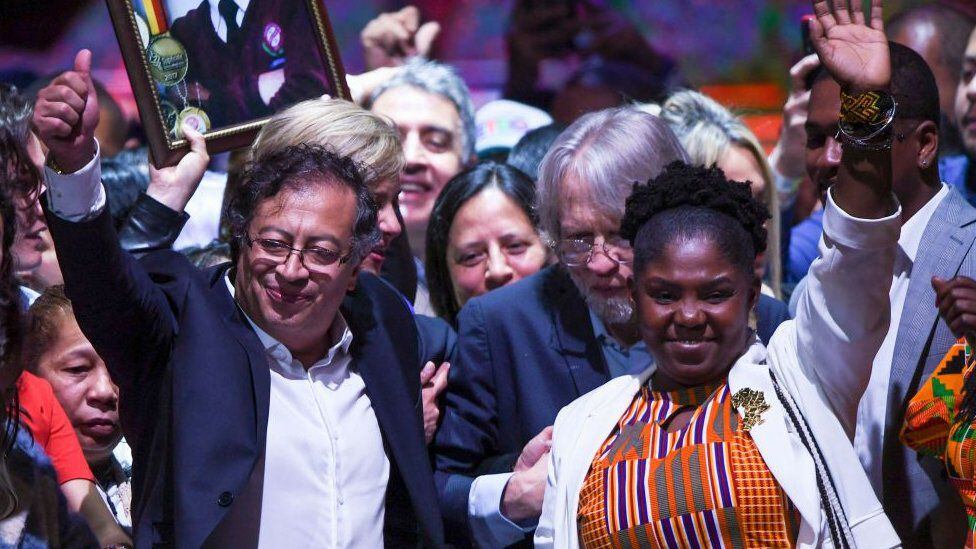As soon as he was elected president of Colombia, Gustavo Petro launched a public message to Washington.
“I think the time has come to sit down with the United States government and talk,” he said in his speech Sunday night after winning the election.
LOOK: How the M-19 guerrilla movement operated and what role Gustavo Petro had
He immediately explained that he wants to seek an agreement on the greenhouse gases that the US emits and that are absorbed by the “sponge” of the Amazon jungle that Colombia shares with other countries in the region.
“If it is broadcast there and we absorb it here, why don’t we dialogue?“, asked Petro. “I propose to the government of the United States and all the governments of America to sit down and talk to accelerate the steps of the energy transition.”
But the idea of ”decarbonizing” the economy is far from the only sensitive issue between Colombia’s first elected leftist president and Washington, which has that country as its closest ally in Latin America.
Other issues appear on the agenda, such as drug strategy or Petro’s intention to reestablish diplomatic relations with Venezuela, which, according to experts, could give an important turn to Bogotá’s foreign policy.
security issue
The US attaches singular importance to its ties with Colombia.
A sign of this was seen this month, when President Joe Biden chose his outgoing Colombian counterpart from among all the leaders of the continent, Ivan Duketo sit next to him at the opening ceremony of the Summit of the Americas in Los Angeles.
There are several reasons behind that gesture.
Colombia is the Latin American country that in recent times has received more US money in security and economic assistance: about $13 billion since 2000.
This aid was largely channeled through “Plan Colombia”, designed to confront drug trafficking and guerrilla movements in the South American country, and included everything from military cooperation and training to intelligence support.
Petro, an economist and former member of the nationalist M-19 guerrilla group, demobilized in 1990, received a public message from the US Secretary of State after his electoral victory on Sunday.
“We look forward to continuing our strong partnership with President-elect @petrogustavo and building a more democratic and equitable hemisphere,” the US diplomat tweeted. Anthony Blinken.
One day after the elections, Petro had a telephone conversation with Blinken, in which they touched on the issues of the peace process and climate change.
The State Department said Blinken mentioned the “democratic values shared by both countries” and reiterated “US support for the implementation” of the 2016 peace accords.
Difficulties?
The strategic relationship between the two countries could be tested with the change of Colombian government in August.
Petro has indicated that he wants to announce the failure of the “war on drugs” and re-examine the free trade agreement between Colombia and the US, which in his opinion threatens agricultural production in his country.
and some analysts foresee difficulties in the bilateral relationship, although neither of the two governments has an interest in causing them.
In anti-drug policy, Petro “is going to clash with a US government that talks about changing some aspects but that really continues with the same frameworks as in the 1980s,” he says. adam isaacsonan expert from the Washington Office on Latin America (WOLA).
He adds that if, in its search for clean energy, Petro puts obstacles to investments by US oil companies in Colombia, there may also be “quite strong diplomatic disagreements.”
Arlene Ticknera professor of International Relations at the Universidad del Rosario, in Bogotá, nevertheless sees coincidences between Petro’s program and Biden’s agenda on clean energy and care for the environment.
“Where there really is sensitivity is in the feeling of losing the main ally and partner (of the US) in Latin America. And this, in neuralgic issues such as the security plan, is something in my view that is disturbing for Washington,” Tickner tells BBC Mundo.
The mature factor
Although he has described as “dictatorial” the government of Nicholas Maduro In Venezuela, the elected president of Colombia wants to restore diplomacy between the two nations, which share a difficult border of more than 2,200 kilometers.
Maduro broke diplomatic relations with Colombia in 2019 by accusing the Duque government of “fascist” after it stopped recognizing him as Venezuelan president and accredited the opposition leader instead Juan Guaido.

That strategy of international isolation of Maduro, promoted by the US under the government of former President Donald Trump and still in force to a large extent, could now lose the key support of Colombia.
Maduro himself congratulated Petro and the Colombian Vice President-elect, France Marquezfor his victory in the ballot on Sunday.
“New times are ahead for this brother country,” he tweeted.
For his part, Petro called for “a dialogue in the Americas without exclusions” on Sunday.
This was seen by some as an allusion to the regional controversy over Biden’s decision to exclude Venezuela, Cuba and Nicaragua from the Summit of the Americas, considering them dictatorships.

Between Colombia and Venezuela “there are a number of problems to attend to,” says Tickner, and the return of diplomacy could contribute to this.
The challenges range from the nearly 1.8 million Venezuelan migrants who fled to Colombia due to the economic and social crisis, to the tension on the border due to the action of illegal armed groups and armies from both countries.
Flexibility?
Petro defined that his diplomatic priority will be to put Colombia “at the forefront of the world in the fight against climate change.”
And he gave a nod to a region where other leftists like him have come to power on a wave of discontent with the political class, social inequality and economic stagnation.
“I propose to Latin America to integrate us more decisively,” he said in his triumphal speech on Sunday. “I propose to Colombia to look at us as Latin Americans, which is what we are.”

Petro may also seek closer ties with other world powers such as China or the European Union while loosening Colombia’s “special relationship” with the US, says Isaacson.
In his opinion, the link between Washington and Bogotá will require mutual flexibility and, although the Republicans in the US Congress are more suspicious of Petro’s ideology, perhaps the Biden White House will pay more attention to his way of governing.
“If Petro governs from the left, but from a democratic left, (…) I don’t think there will be many problems with the US,” he says. “But if he shows authoritarian populist traits, of course the US is going to say so and there will be more friction.”
Source: Elcomercio
I, Ronald Payne, am a journalist and author who dedicated his life to telling the stories that need to be said. I have over 7 years of experience as a reporter and editor, covering everything from politics to business to crime.

:quality(75)/cloudfront-us-east-1.images.arcpublishing.com/elcomercio/GE4TCMZNGA3C2MRRKQYDAORRHE.jpg)

:quality(75)/cloudfront-us-east-1.images.arcpublishing.com/elcomercio/Y7SXNNHDTJEV5EJPJPFSSPZEDQ.jpg)
:quality(75)/cloudfront-us-east-1.images.arcpublishing.com/elcomercio/CQSRE47KTBGAZFTT5ICUC4IZ4A.jpg)
:quality(75)/cloudfront-us-east-1.images.arcpublishing.com/elcomercio/RVWYALVQTBEKTP5PFOEG27A2ZA.jpg)
:quality(75)/cloudfront-us-east-1.images.arcpublishing.com/elcomercio/BDCCFQ5I2JHVZOKLLBZ3VG2KAM.jpg)
